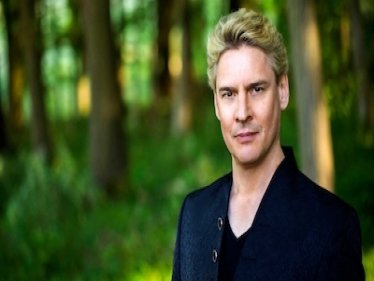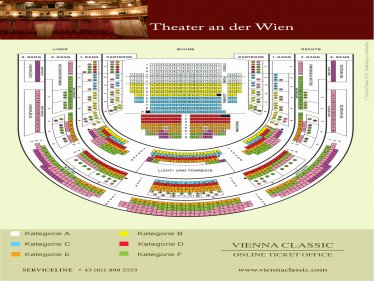Peter Schmoll - Schedule, Program & Tickets
Peter Schmoll
Opera comique in two acts (1802)
Music by Carl Maria von Weber
Libretto based on the novel Peter Schmoll und seine Nachbarn by Carl Gottlob Cramer
Additional lyrics by Willy Werner Göttig
Opera in concert in German
Carl Maria von Weber has just turned fifteen when he wrote the comic opera Peter Schmoll. His father, a failed theatre impresario and director of music, wanted to groom his son as a second mini Mozart and made him work hard — also to support the family. Joseph Haydn’s bother Michael taught the lad at times and judged his little opera favourably: “…I ... cannot do otherwise than bear appropriate witness ... that this opera is written bravely and perfectly according to the true principles of counterpoint, with much fire and delicacy, and that the text is set entirely suitably [by] the composer himself”. The story is from the comic novel Peter Schmoll und seine Nachbarn by Carl Gottlob Cramer which was popular at the time. The eponymous hero is a grumpy merchant whom the chaos of the French Revolution has forced to leave France for Germany where he lives with his niece in a lonely castle. All his acquaintances appear to have scattered and he is not interested in making new ones: he never leaves the house and his niece Minette, whom he would like to marry, is absolutely forbidden from doing so. But Minette has no wish to marry her uncle, despite her fondness for him, nor does she want to waste away in the castle. She finds ways and means to be reunited with her true love Karl, who happens to pass by in the vicinity, and to lure her uncle out of his self-imposed isolation and — despite her refusal to marry him — cheer him up. Incredibly, all the friends they left behind in France have fled to the hamlet beneath the castle, and a merry reunion soon takes place. Weber’s budding talent is evident less in the dramatic structure or the musical form — although he certainly makes some ambitious attempts — than in his unconventional orchestration: he experiments with instruments seldom used at the time such as recorders, basset horns, piccolos and solo trombones. And perhaps the playful invention of memorable songlike passages also hints at the maestro he was to become who created Der Freischütz, Oberon and Euryanthe.
Subject to change.
Music by Carl Maria von Weber
Libretto based on the novel Peter Schmoll und seine Nachbarn by Carl Gottlob Cramer
Additional lyrics by Willy Werner Göttig
Opera in concert in German
Carl Maria von Weber has just turned fifteen when he wrote the comic opera Peter Schmoll. His father, a failed theatre impresario and director of music, wanted to groom his son as a second mini Mozart and made him work hard — also to support the family. Joseph Haydn’s bother Michael taught the lad at times and judged his little opera favourably: “…I ... cannot do otherwise than bear appropriate witness ... that this opera is written bravely and perfectly according to the true principles of counterpoint, with much fire and delicacy, and that the text is set entirely suitably [by] the composer himself”. The story is from the comic novel Peter Schmoll und seine Nachbarn by Carl Gottlob Cramer which was popular at the time. The eponymous hero is a grumpy merchant whom the chaos of the French Revolution has forced to leave France for Germany where he lives with his niece in a lonely castle. All his acquaintances appear to have scattered and he is not interested in making new ones: he never leaves the house and his niece Minette, whom he would like to marry, is absolutely forbidden from doing so. But Minette has no wish to marry her uncle, despite her fondness for him, nor does she want to waste away in the castle. She finds ways and means to be reunited with her true love Karl, who happens to pass by in the vicinity, and to lure her uncle out of his self-imposed isolation and — despite her refusal to marry him — cheer him up. Incredibly, all the friends they left behind in France have fled to the hamlet beneath the castle, and a merry reunion soon takes place. Weber’s budding talent is evident less in the dramatic structure or the musical form — although he certainly makes some ambitious attempts — than in his unconventional orchestration: he experiments with instruments seldom used at the time such as recorders, basset horns, piccolos and solo trombones. And perhaps the playful invention of memorable songlike passages also hints at the maestro he was to become who created Der Freischütz, Oberon and Euryanthe.
Subject to change.
There are no products matching the selection.



